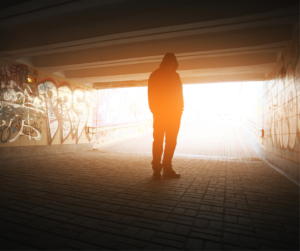10 Reasons Why People Abuse Drugs

This article is by Dr. Mark Gerges and published by Recovery Connection
The reasons why people use drugs vary greatly for every individual. More often than not, a person is trying to fix an issue within their life and they see drugs as the solution.
A young person may be trying to fit in with their peers and views using or alcohol drugs as a means of feeling “a part of.” In contrast, many individuals use drugs as a way to self-medicate. From chronic pain to mental health disorders, many people use drugs to alleviate symptoms of an ailment.
Here is a top ten list of why people use drugs:
1 Experimenting
It is not uncommon for addiction to stem from a person being curious and experimenting with drugs or alcohol. It is a scenario that often starts with a young person using alcohol or marijuana out of curiosity. While it seems harmless, adolescents that experiment with drugs and alcohol are more likely to develop substance use disorder according to the National Institute on Drug Abuse.
2 Family History/Genetics
If you have a family history of drug addiction, you may have a genetic predisposition to develop an addiction to drugs or alcohol. It is stated that about 30% – 70% of a person’s risk for addiction is linked to the genes they are born with along with other social factors.
3 Prescription Drugs
There is a popular misconception that any medication prescribed by a doctor is safe. Unfortunately, that is not always the case. Doctors prescribe medications to alleviate symptoms of physical or mental health issues. However, many individuals are not properly educated on the risks that the medications may carry. Chronic pain is often managed through opioid medications, which are highly addictive. Dependent upon the amount used and other factors, someone may require a medical detox just to stop using opioids. Likewise, those suffering from anxiety and depression may be prescribed addictive medications to ease symptoms. Non-addictive medication and/or pain recovery services are often available.
4 Loneliness
Addiction can start when an individual feels lonely or is isolated from the friends and family. They turn to drugs and alcohol thinking that it will fill a void that they have been living with. People lacking positive daily interaction may choose to use substances to feel happy or content. Additionally, users begin to alienate themselves further if they fear being judged or that help is not available to them.
5 Peer Pressure
Peer pressure usually applies to adolescents or young adults. The need to fit in, on some level, is built into each and every one of us. Some people may feel the need to participate in potentially harmful activities to do so. The pressure of being around others who are abusing drugs or alcohol can push someone to follow suit.
6 Drugs and alcohol can make you feel good
There is a popular quote in the Big Book of Alcoholics Anonymous that states: “Men and women drink essentially because they like the effect produced by alcohol.” While this seems obvious, some people like the effect so much that they are unable to stop. It may be difficult to see the harm in something that makes you feel good.
7 Mental Health Disorders
Depression, anxiety, and PTSD can put individuals at higher risk of developing an addiction. Using substances to cope with difficult feelings may seem like an easier path for some. Though they may seem crippling at times, there is help available to anyone struggling with a mental health disorder. Non-narcotic medications are often available for most mental health disorders. It’s worth researching with a doctor to see if there is an alternative to addictive medications.
8 Recreation
Many people use drugs or alcohol socially with friends or to “unwind” after a long day. They often see substances as a way to relax or clear their minds. Recreational drug users are still at risk to become addicted if their use becomes more frequent or they use highly addictive substances.
9 Alcohol isn’t enough
For some, alcohol stops doing the trick. A few beers after work or having drinks with friends at a local bar just doesn’t have the same effect that it used to. Some individuals end up “chasing a buzz” that they were once able to attain with a few drinks. This can leave someone powerless over alcohol and unable to quit drinking.
10 Self-Medicating
People struggling with any of a multitude of ailments may turn to drugs or alcohol to ease their pain. Mental health disorders and chronic pain leave some seeking solutions on their own. Alcohol or other substances can alleviate symptoms and seem like a short-term solution. However, people should look for manageable, long-term solutions under medical supervision to combat these issues.
There are many reasons why people use drugs. Knowing the risk of using alcohol and other drugs is half the battle. When we educated ourselves about these issues, we are more likely to make better decisions in the future.